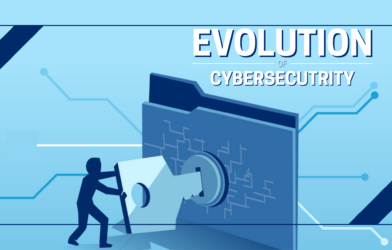
In today’s digital landscape, cybersecurity threats have become increasingly sophisticated and pervasive. From ransomware attacks to data breaches and phishing scams, organizations of all sizes face constant risks to their digital assets and sensitive information. To combat these threats effectively, many businesses are turning to proactive security measures, including Managed Security Services (MSS). In this article, we’ll explore how proactive security strategies, particularly those offered by MSS, help organizations stay ahead of emerging threats.
The digital transformation of business operations has brought numerous benefits, including increased efficiency, remote work capabilities, and enhanced customer engagement. However, it has also exposed organizations to a multitude of cybersecurity challenges:
1. Evolving Threat Landscape:
Cyberattacks continue to grow in sophistication, making them difficult to detect and mitigate.
2. Data Breaches:
The loss or theft of sensitive data can lead to legal and reputational consequences.
3. Ransomware Attacks:
Ransomware has become a prevalent threat, with cybercriminals demanding hefty sums in exchange for stolen or encrypted data.
4. Phishing and Social Engineering:
Attackers often use social engineering tactics to deceive employees into divulging sensitive information.
5. Insider Threats:
Malicious or negligent actions by employees can result in data leaks or breaches.
Managed Security Services provide organizations with proactive and comprehensive security solutions designed to mitigate risks and respond swiftly to emerging threats. MSS providers offer a range of services, including threat detection, incident response, security monitoring, and ongoing management of security infrastructure. Here’s how MSS helps organizations stay ahead of threats:
1. Real-Time Monitoring:
MSS providers offer 24/7 monitoring of networks and systems, allowing them to detect and respond to threats in real-time.
2. Threat Intelligence:
MSS providers leverage threat intelligence feeds to stay informed about the latest cyber threats, tactics, and techniques.
3. Rapid Incident Response:
In the event of a security incident, MSS providers can initiate an immediate response to contain and mitigate the threat, minimizing potential damage.
4. Vulnerability Management:
MSS providers conduct regular vulnerability assessments and patch management to address potential weaknesses in security infrastructure.
5. Access Control:
Strict access controls and user behavior monitoring help prevent unauthorized access and insider threats.
6. Compliance Management:
MSS providers assist organizations in achieving and maintaining compliance with industry-specific regulations and data protection laws.
7. Employee Training:
MSS providers often offer security awareness training to educate employees about cybersecurity best practices and the importance of vigilance.
8. Advanced Technologies:
MSS providers have access to cutting-edge cybersecurity tools and technologies that may be cost-prohibitive for individual organizations.
Embracing proactive security measures, such as those offered by MSS, yields significant benefits for organizations:
1. Risk Mitigation:
Proactive security measures help identify and address vulnerabilities before they can be exploited by cybercriminals.
2. Cost-Effective:
MSS is often more cost-effective than building and maintaining an in-house security team and infrastructure.
3. Business Continuity:
Rapid incident response and disaster recovery planning ensure business continuity in the face of security incidents.
4. Enhanced Compliance:
Proactive security measures assist organizations in meeting regulatory requirements and avoiding legal consequences.
5. Reputation Protection:
Demonstrating a commitment to cybersecurity enhances an organization’s reputation and customer trust.
6. Focus on Core Operations:
Outsourcing security responsibilities allows businesses to concentrate on their core competencies.
To fully realize the benefits of proactive security, organizations should take the following steps:
1. Assess Your Needs:
Conduct a comprehensive assessment of your organization’s unique security requirements and potential risks.
2. Choose a Trusted Provider:
Select an MSS provider with a strong track record and expertise in your industry.
3. Customization:
Collaborate with your MSS provider to tailor security solutions to your organization’s specific needs.
4. Continuous Communication:
Maintain open lines of communication with your MSS provider to stay informed about security threats and incident responses.
5. Employee Training:
Educate your employees about security best practices and their role in maintaining a secure environment.
6. Regular Evaluation:
Periodically review and assess the effectiveness of your proactive security measures to ensure they align with evolving threats.
Proactive security, particularly through Managed Security Services, is an essential component of modern cybersecurity strategies. In an era where cyber threats are constantly evolving, organizations must adopt measures that enable them to stay ahead of potential risks. By leveraging MSS, organizations can access expert guidance, 24/7 monitoring, and advanced technologies that enhance their security posture and protect them from emerging threats. Proactive security is not merely a defensive measure; it is an investment in the resilience and longevity of your organization in an increasingly digital world.



